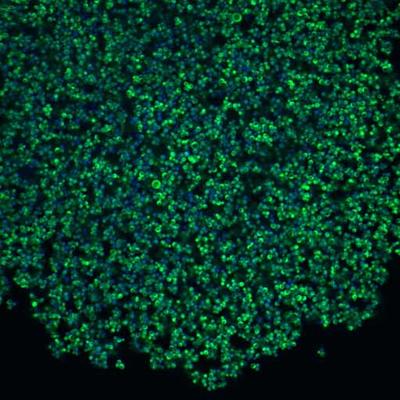We try to understand the “rules of the game” that explain how cells function and evolve. We study  budding yeast, using experimental evolution, genetic analysis, synthetic biology, and cell biology. We try to make quantitative measurements that discriminate amongst different classes of models. Members of the lab come from both biology and physics backgrounds.
budding yeast, using experimental evolution, genetic analysis, synthetic biology, and cell biology. We try to make quantitative measurements that discriminate amongst different classes of models. Members of the lab come from both biology and physics backgrounds.
How does biological novelty evolve? Because we lack time travel, this process is difficult to study in nature, and we therefore apply selective pressure in the laboratory. We have evolved multicellularity, altered mating preferences, circadian oscillators, genetic instability, and new connections between signaling pathways and have developed methods to find the mutations that cause these new phenotypes. We are interested both in general questions about what determines evolutionary trajectories and the specific mechanisms that organisms invent to produce novel traits.
How do cells accomplish specific tasks and how did these solutions evolve? We follow the Feynman principle of “What I cannot create, I cannot understand” by engineering and analyzing the behavior of new yeast strains. As examples, we have used synthetic biology to support the notions that the efficient use of secreted public goods drove the evolution of multicellularity, that multicellularity arose before cellular differentiation, and that novel symbioses could arise without requiring previous evolutionary co-adaptation.
How do cells respond and adapt to their environment to maximize the chance that they survive and reproduce? Achieving these aims requires the coordination of thousands of reactions under a wide range of inter- and extracellular conditions. We are exploring how yeast cells respond to sudden starvation and have discovered that they can rapidly halt their cell cycles, at any stage, and then, later, slowly resume cell division. We are asking how they arrest, whether the arrest destabilizes the genome, and how cells adapt to start dividing again.
Finally, we collaborate with David Nelson (Physics and MCB) to combine theory and experiment to investigate population dynamics and evolution in space and time.





